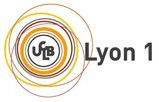Fundamental aspects of turbulent flows in climate dynamics
| Quand ? |
Du 31/07/2017 à 09:00 au 25/08/2017 à 17:30 |
|---|---|
| Où ? | Ecole de physique des Houches |
| Ajouter un événement au calendrier |
|
Climate is controlled by turbulent flows. Turbulent motions are responsible for the bulk of the transport of energy, momentum, and water vapor in the atmosphere, which determine the distribution of temperature, winds, and precipitation on Earth. Clouds, weather systems, and boundary layers in the oceans and atmosphere are manifestations of turbulence in the climate system. Because turbulence remains as the great unsolved problem of classical physics, we do not have a complete physical theory of climate. The aim of this summer school is to survey what is known about how turbulent flows control climate, what role they may play in climate change, and to outline where progress in this important area can be expected, given today's computational and observational capabilities.
The summer school will take place at Les Houches Physics School from July 31 to August 25, 2017. It is organized around 10 core sets of lectures, delivered by internationally leading scientists. Each lecture set will consist of about 5 two-hours lectures within a week of the summer school. Starting from basic concepts in climate dynamics and the role of turbulence in it, they will advance to the forefront of current knowledge. Shorter invited presentations by visiting lecturers will complement the core lectures. Summer school participants will interact with lecturers and visitors, for example, in a daily journal club on classical papers on turbulent flows in climate dynamics.
The school is intended for PhD students and early-career researchers working in the climate sciences or fluid dynamics. PhD students and early-career researchers from other physical sciences or engineering are also encouraged to participate. The summer school will be a unique opportunity to learn about basic aspects of climate dynamics and about the forefront of current research.
Practical information on the Physics School can be found here. Les Houches is a resort village in the Chamonix valley in the French Alps. Established in 1951, the Physics School is located in a group of chalets surrounded by meadows and woods, at an altitude of 1150 m facing the Mont-Blanc range--a very favourable environment for intellectual activity in ideal surroundings for hiking, mountaineering, and sight-seeing in one of the most scenic areas of the Alps.
Participants are welcome to arrive July 31 after 2pm. Lectures will begin August 1st at 9am, and will end August 24 at 6pm. The center of Physics will close August 25 at 4pm.
Applications must reach the School by March 15, 2017.
LECTURES
- Turbulence theory, dynamical systems approaches, statistical physics
- Stephan Fauve (CNRS, LPS, ENS-Paris)
- Henk Dijkstra (Utrecht University)
- Ocean turbulence
- Paola Cessi (Scripps, UC San Diego)
- William Young (Scripps, UC San Diego)
- Raffaele Ferrari (MIT)
- Large scale atmosphere turbulence
- Isaac Held (GFDL/NOAA, Princeton University)
- Ted Shepherd (University of Reading)
- Clouds and turbulent moist convection
- Caroline Muller (CNRS, LMD/IPSL)
- David Romps (UC Berkeley)
INVITED SEMINARS
SCIENTIFIC COMMITTEE
- Raffaele Ferrari (MIT)
- Isaac Held (GFDL/NOAA, Princeton University)
- Ted Shepherd (University of Reading)
- William Young (Scripps, UC San Diego)
ORGANIZING COMMITTEE
- Freddy Bouchet (CNRS, ENS de Lyon)
- Tapio Schneider (Caltech)
- Antoine Venaille (CNRS, ENS de Lyon)
SPONSORSHIP
Les Houches Physics School is affiliated with Université Grenoble Alpes and Institut National Polytechnique de Grenoble, and is supported by the Ministère de l'Education Nationale et de la Recherche, the Centre National de la Recherche Scientifique (CNRS), and the Direction des Sciences de la Matière du Commissariat à l'Energie Atomique (CEA/DSM). This session is also supported by the Ecole Normale Supérieure de Lyon and the European Research Council.










